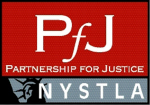 The New Year has already brought a change for the better for people with long-term disabilities who reside in New York State thanks to the availability beginning this year of tax-free ABLE accounts to fund medical, housing, education, transportation and other expenses related to their disability.
The New Year has already brought a change for the better for people with long-term disabilities who reside in New York State thanks to the availability beginning this year of tax-free ABLE accounts to fund medical, housing, education, transportation and other expenses related to their disability.
These ABLE accounts are structured along the lines of other tax-advantaged savings accounts, such as the popular 529 college savings account, where earnings from contributions (subject to a $14,000 annual limitation) can accumulate on a tax-free basis. Made possible by federal legislation introduced back in 2014, the New York legislature passed its enabling bill last year, with New York becoming the 20th state thus far to make these useful accounts available for use by qualified disabled residents.







